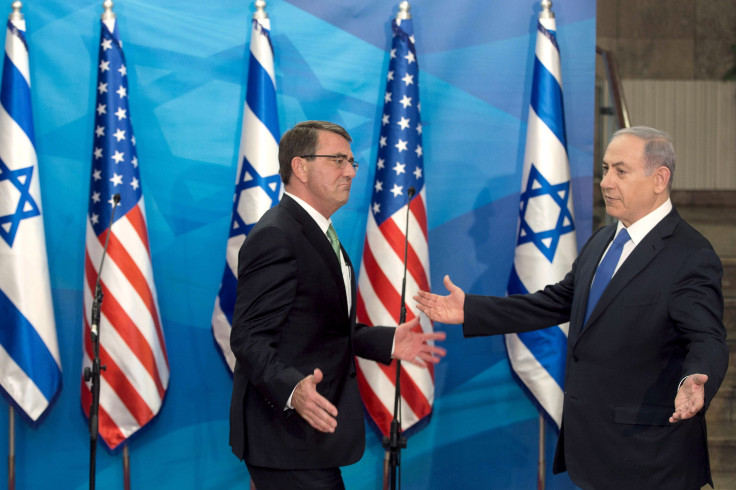Iran Nuclear Deal: Netanyahu Concerned With Economic Sanctions, Not Nuclear Capability, Says Iranian Commentator

Israeli Prime Minister Benjamin Netanyahu's steadfast opposition to the Iran nuclear deal comes from a fear of the lifting of economic sanctions rather than of a nuclear capable Iran, an Iranian political commentator speculated Wednesday. Emad Abshenass, the editor-in-chief of Iran Press newspaper, said that Netanyahu fears the possibility of a financially stable Iran and strengthening ties between the United States and the Middle Eastern nation, reported Sputnik News.
The Iran nuclear deal, which halts the development of Iran's nuclear program in exchange for the easing of economic sanctions and was announced July 14, has been firmly criticized by Netanyahu as a threat to Israel's security. Netanyahu has made overtures to American citizens to protest the agreement. Abshenass called Netanyahu's concern for the raising of economic sanctions "natural."
"If the West and Iran come to a complete understanding and agreement on this issue, sanctions would be the first to be lifted," Abshenass said. "And then after two to three months, Iran expects that the assets that were earlier frozen (120 to 180 billion dollars, according to estimates), will be returned to the treasury."

Abshenass's comments come on the heels of an open letter signed by dozens of prominent former senior members of Israel's defense establishment, including the former chiefs of Shin Bet, Israel's internal secret service agency, and several former members of the Knesset, the Israeli parliament, published Monday in Haaretz. The letter urged Netanyahu to accept the Iran Accord as a "done Deal" and an "accomplished fact" in order to "renew the trust between and enhance the security cooperation with the US administration."
The letter also suggested that by accepting the Iran nuclear deal, Israel's relationship with nearby Arab nations would benefit and would help protect the nation from the instability of extremism.
"Such policies will enable both the integration of Israel's capabilities with those regional and international players who share the view of nuclear Iran as a serious threat, and the recruiting of moderate Arab states for the advancement of a political settlement between Israel and the Palestinians," read the letter, according to Haaretz.
Abshenass also suggested that the Iran deal would counteract extremism through improving international cooperation between the US and Iran, Russia and China. "Through active engagement, countries could counteract modern challenges and threats – fundamentalism and terrorism," Abshenass said.
© Copyright IBTimes 2024. All rights reserved.












